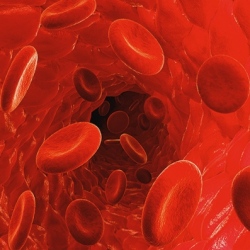
In preventing heart and brain disease, the earliest warning sign could be all that it takes to slow, and even possibly reverse the condition. In a study published in Radiology, scientists investigated the relationship between a protein called N-terminal Pro-B-type natriuretic peptide (NT-proBNP) and heart and brain disease.
Previous studies have shown that the concentration of NT-proBNP increases with damage brought on by heart disease and brain disease.
The researches theorize that to add to this, NT-proBNP could be imaging markers for subclinical brain damage, like brain volume and white matter integrity. They sought to confirm this theory by studying 2,397 middle-aged and elderly people without clinical diagnosis of dementia or heart disease.
“We found that higher serum levels of NT-proBNP were associated with smaller brain volumes, in particular with smaller gray matter volume, and with poorer organization of the brain’s white matter,”says Meike Vernooij, lead author and neuroradiologist at Erasmus MC University Medical Center in Rotterdam.
The researchers haven’t fully explained why this correlation exists, but they hypothesize that it is because of a decrease of blood flow that causes cerebral microvascular damage.
It’s still too early in the study for the findings to be used to indicate heart failure or brain damage, but it does add promising new information to the pool of research about such disease.
Heart disease, including stroke and other cardiovascular diseases, is the number one cause of death in the United States. About 610,000 Americans die from heart disease each year. These complex diseases are brought on by a mix of hereditary factors together with lifestyle choices.
This research provides hope that testing for these markers could allow physicians to detect these diseases subclinically, or well before the symptoms are exhibited. Aggressive treatment at these early stages could lead to a slowing of disease progression, or perhaps even reversal.
